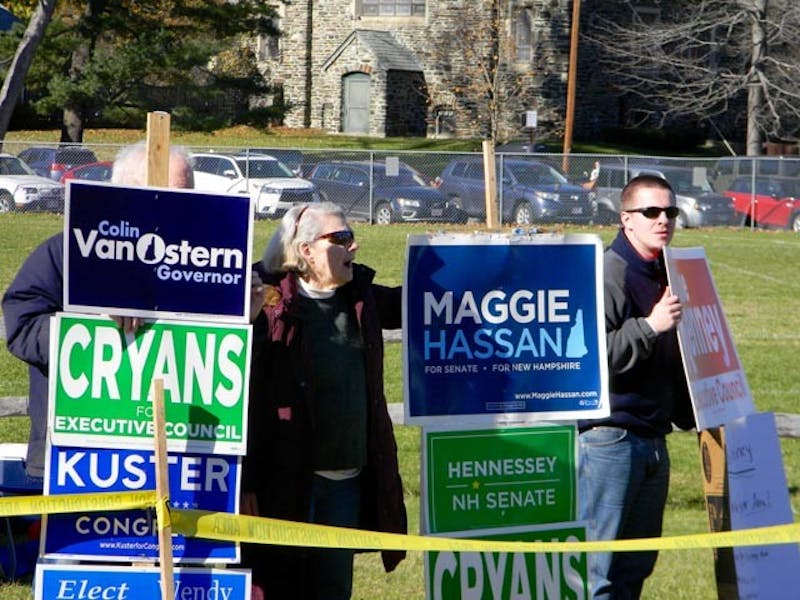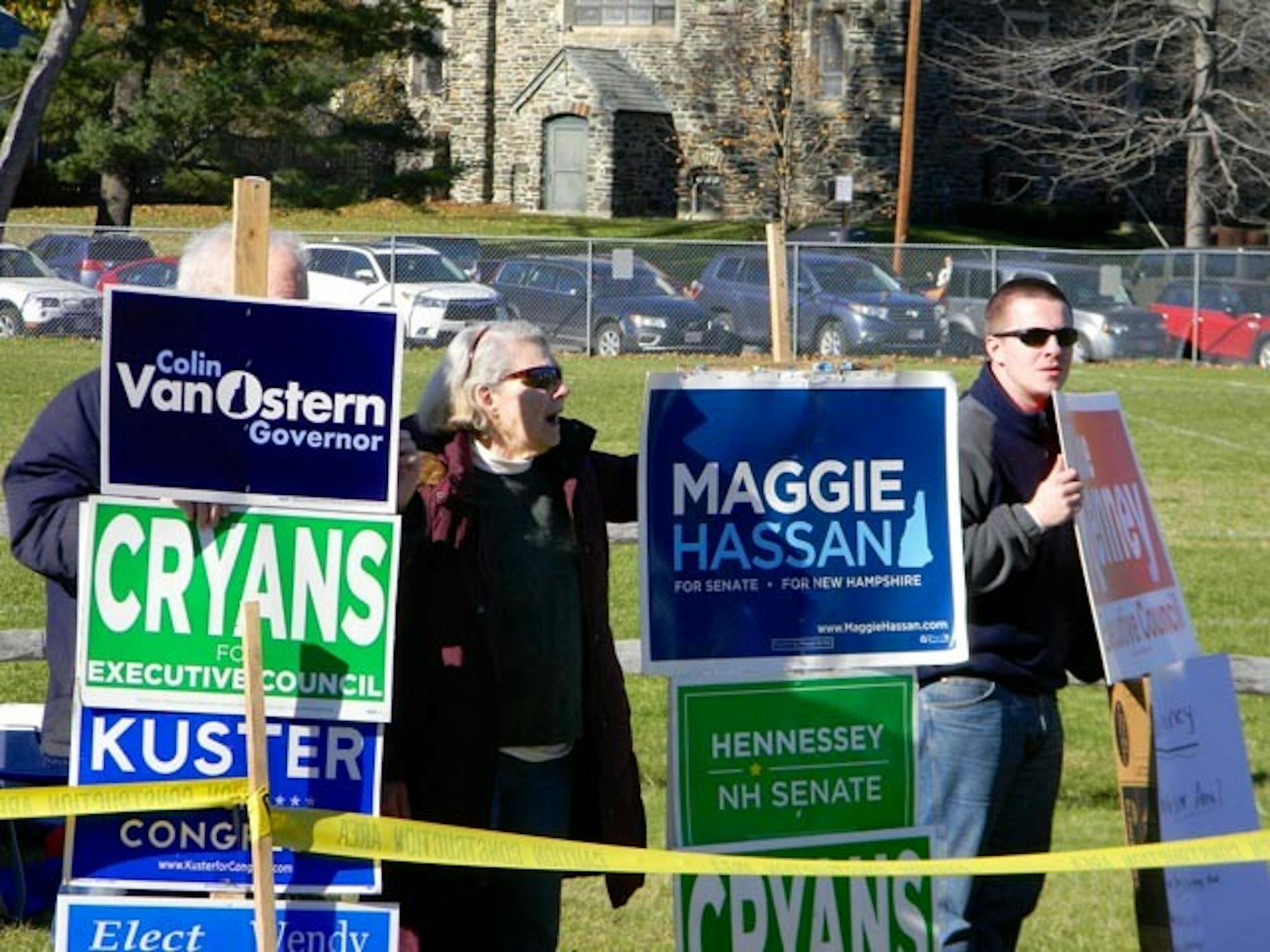This article was featured in the 2017 Freshman Issue.
“Dartmouth College has a problem,” declared Linda Chavez in a widely-read April 2014 New York Post opinion column. Student protesters, she wrote, had occupied President Phil Hanlon’s office and demanded increased faculty diversity, gender-neutral bathrooms and coverage of sex change operations under student health insurance plans.
It can be difficult to ignore sensational articles published by major news outlets following instances of student-led political activism at the College. However, student activists in Divest Dartmouth, Turning Point USA and other groups view their work as more than just fodder for national headlines. Some, like Jesus Franco ’20, say that rather than being “a problem,” political activism is a powerful instrument of change on campus.
Franco is the co-director of Dartmouth Coalition for Immigration Reform, Equality and DREAMers, or CoFIRED, a campus organization that gathers resources for undocumented students. Franco said that he became involved in CoFIRED last fall as a freshman because he wanted to make a difference on campus. He added that he felt connected to CoFIRED in particular because he comes from a “mixed status” family — while Franco has legal status in the United States, his parents are undocumented immigrants.
CoFIRED’s fall 2016 programming included hosting students from Freedom University, an Atlanta-based school for undocumented youth that was founded in 2011 after the Georgia Board of Regents banned undocumented students from attending Georgia’s top public universities and removed in-state tuition eligibility for undocumented students. The group hosted students from Freedom University to raise awareness for issues affecting undocumented youth, he said.
Additionally, some of CoFIRED’s previous work has received national recognition, such as the group’s successful 2016 petition which helped to replace the term “illegal alien” with “undocumented immigrant” in the Library of Congress classification system.
Franco said that since Donald Trump’s election to the U.S. presidency, CoFIRED has been “acting pre-emptively” to reassure undocumented students at Dartmouth that the College is prepared to support them in any way possible in the event that the Trump administration phases out Deferred Action for Childhood Arrivals, an Obama-era policy that allows undocumented immigrants who entered the country as minors to receive renewable deferral from deportation.
“Dartmouth has a long history of political activism … and no student should be complacent when they [notice issues at the College],” he said.
Divest Dartmouth member Alex Miller ’20 echoed Franco’s sentiment that student-initiated political advocacy is an important source of positive change on campus, saying that he especially appreciated how many of the College’s faculty members encouraged students to become politically involved in issues that interest them.
Miller added that he enjoys his work with Divest Dartmouth because there is a strong sense of progress in the organization and its small size allows him to take a more active role in the group’s operations.
For example, he helped to coordinate a Keystone pipeline protest, in which Divest members strung together empty Keystone Light beer cans and placed them around the administrative building, Parkhurst Hall, to protest the construction of the Keystone XL and Dakota Access pipelines. Miller said that Divest intends to plan more visible projects, similar to the Keystone pipeline protest, to bring more awareness to the organization and its mission.Miller expects membership in Divest to increase as a result of more visible activism techniques, adding that increased membership would improve the organization’s ability to attract attention from the College administration. He also said that he is optimistic that Divest will realize its goal of convincing College officials to divest from certain fossil fuel companies because of changes within the Board of Trustees. Miller added that newer, younger trustees seem more interested in Divest Dartmouth’s mission than previous trustees.
Founder of Dartmouth’s chapter of Turning Point USA, a right-wing non-profit organization, Tyler Baum ’20 said that political activism on campus allows students to learn from their peers’ perspectives. Turning Point USA is known for its founder, conservative activist Charlie Kirk, and its Professor Watchlist — on which Dartmouth’s women’s, gender and sexuality studies professor Eng-Beng Lim is listed. The group seeks to promote fiscal responsibility, free markets and limited government through campus activist programming.

Baum said that he founded Dartmouth’s chapter of Turning Point USA because he was disappointed with how political discussions in other organizations sometimes devolved into partisan debates.
“Turning Point USA is for people to come together regardless of party or ideology…[before I created Turning Point USA] there wasn’t really a place where people from both sides of the aisle could come together and talk about issues,” he said.
Baum said that in having non-partisan discussions with his peers, he has at times adapted his own views.
“As a conservative on campus, [it’s important for me to learn] from people I may not agree with,” he said.
Baum said that in addition to hosting guest speakers, Dartmouth’s chapter of Turning Point USA intends to address issues affecting college students, such as free speech on campus and the student debt crisis. He said that Turning Point USA is planning to organize a “free speech ball” event during the fall term in which students can write whatever they want on a large beach ball.
President of the College Democrats Jennifer West ’20 said that she became more politically involved than she expected she would be during her first year at Dartmouth because the College’s culture is “a breeding ground for political activism.”
West added that she was “overwhelmed” with the student body’s strong interest in attending the Women’s March on Washington in January 2017 after posting about the event in the Dartmouth Class of 2020 Facebook page. Some students, she said, created their own groups to attend the march together following her post.
She explained that political activism is an especially powerful force at the College because as other universities grapple with issues of free speech, Dartmouth seems “relatively isolated” from the controversy surrounding this issue. Instead, West said, she and her peers feel free to speak their minds and disagree with each other in a civil, productive way.
“I have friends with political views that could not be more different than mine, and I think that it is because of Dartmouth that we are able to have productive conversations,” West said. “This school really does foster a great sense of community and respect among students.”
She added that a debate between the College Republicans and the College Democrats during the spring term successfully maintained a strong policy focus, and that participants did not resort to making snide remarks or ad hominem attacks that have recently become a fixture of national politics.
West also said that while she disagrees with Milo Yiannopoulos, a political commentator closely associated with the alt-right movement, she was glad that he had the opportunity to speak to Dartmouth students without interruption when he visited campus in November 2016. Yiannopoulos’s visits to college campuses were the subject of intense media scrutiny in February 2017 when the University of California, Berkeley canceled his talk after 150 student protesters caused $100,000 worth of damage ahead of his scheduled appearance.
West said that she supports the right of an individual to express their opinion peacefully, adding that in this regard, “Dartmouth is really a model for other campuses to follow.”
Miller echoed this sentiment, saying “There has never been a part of me that feels I am being silenced.”




